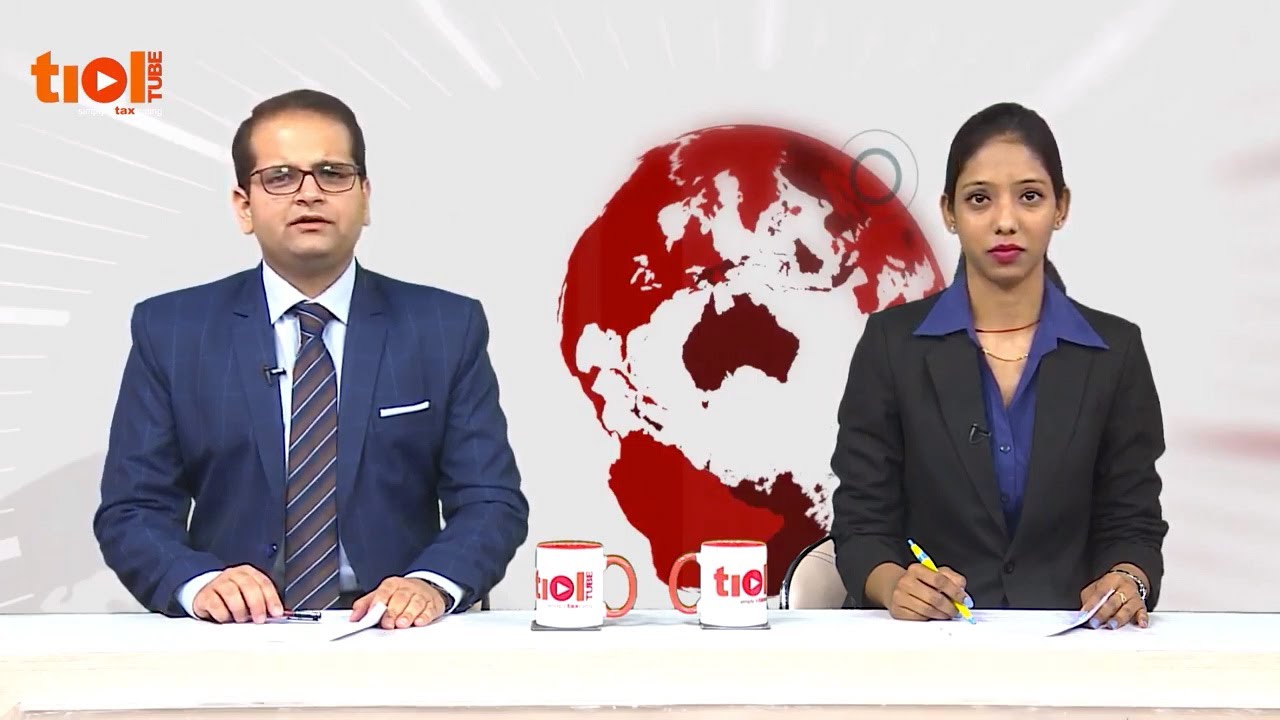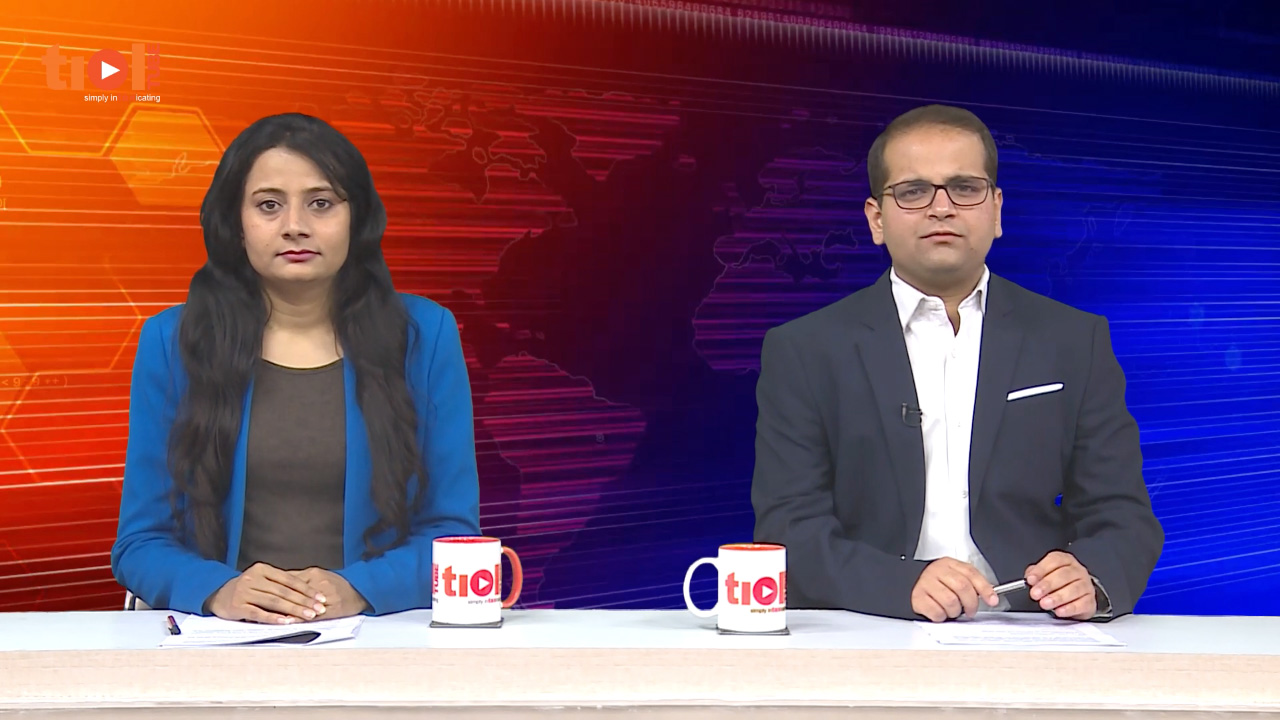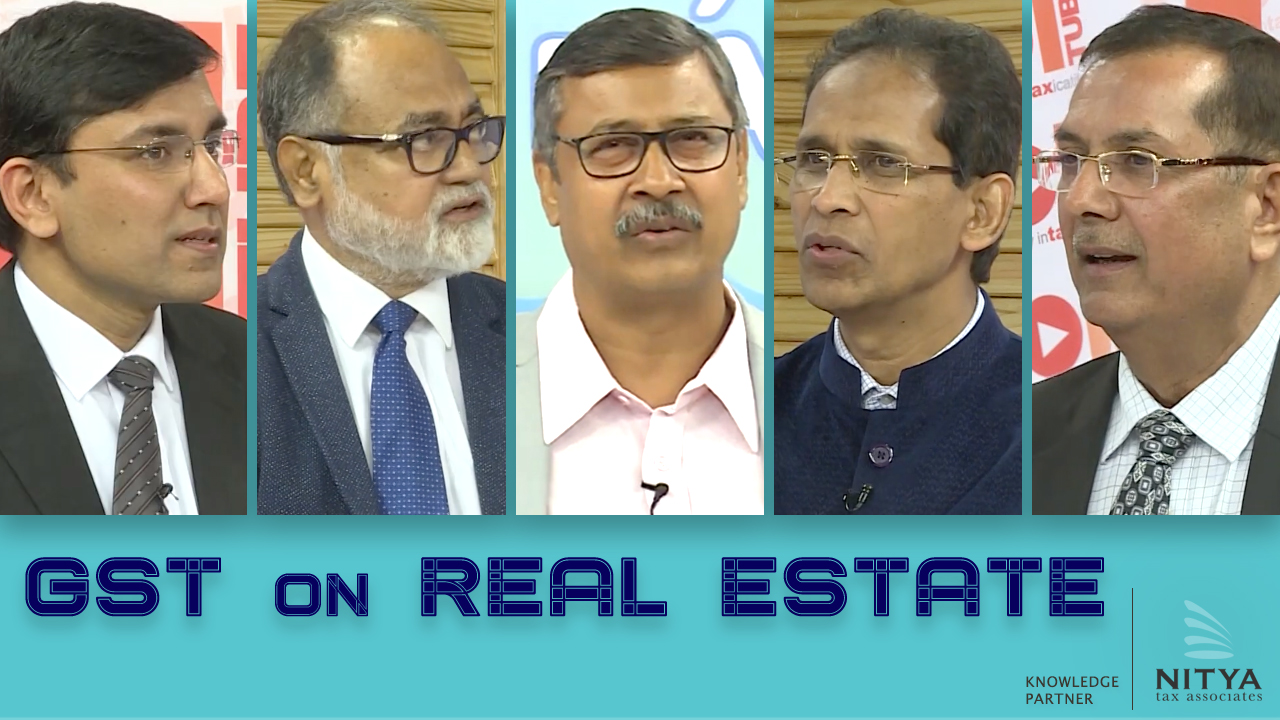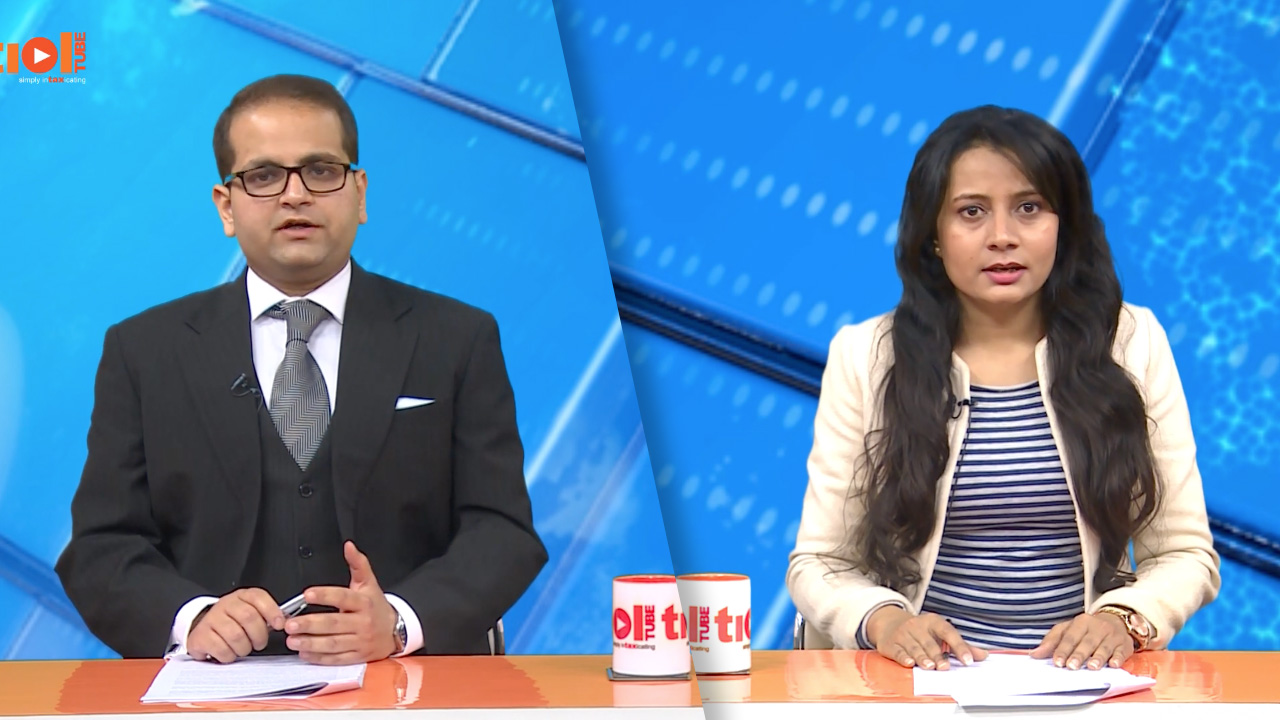|
SERVICE TAX
2019-TIOL-160-SC-ST
Pr.CST Vs Wartsila India Ltd
ST - The genesis of this proceeding is that during audit of assessee's activity, it was noticed that assessee was receiving commission from foreign based principals for promotion of sale of its products/goods in India - Revenue views that the services provided by assessee would fall under category of BAS chargeable to tax on account of commission received - Thus, a SCN was issued under Section 73 of Act, demanding service tax for the period 2008-09 - It was assessee's case which was accepted by Commissioner that services rendered by assessee to its foreign principals constituted export of service and covered by Export of Service Rules, 2005 - Issue is no longer resintegra - An identical nature of services as rendered by assessee to its foreign clients had come up for consideration before this Court in ATE Enterprises (P) Ltd. - This Court followed its earlier decision in SGS India (P) Ltd. and held that services of procuring orders and passing it to its overseas principal/parties and receiving payments for the same in foreign exchange, is an activity of export of services covered by the Export of Service Rules, 2005 - Therefore, the High Court held the issue stands concluded in favour of assessee - Further, Circular No.111 of 2009 issued by CBEC also supports the case of assessee - Nothing has been shown to court as to why said Circular cannot be read in the manner in which the Commissioner of Service Tax and the Tribunal has read it - The decision of Tribunal in case of Blue Star Ltd. which was also a subject matter of appeal before this Court being - This appeal on an identical issue was dismissed as not giving rise to any substantial questions of law.
Held - The Apex Court condoned the delay - Notices be issued to the parties - SLP(C) No 29712/2014: SC
- Notice issued: SUPREME COURT OF INDIA
2019-TIOL-1039-CESTAT-DEL
Nis Sparta Vs CST
ST - The assessee is an approved institution as per 'Insurance Regulatory and Development Authority Regulation 2000' - With respect to demand of service tax under category 'commercial training or coaching service' is concerned, the issue is covered by the judgement of Tribunal in assessee's own case for earlier period i.e. NIS Sparta Ltd. 2015-TIOL-209-CESTAT-DEL - This ground is held in favour of assessee and the demand is set aside - As per the agreement, admittedly, there is no consideration qua for IPR and the Revenue is not able to show any other evidence - Hence, when there is no consideration for IPR then the demand of service tax under IPR is liable to be set aside - With respect to denial of Cenvat credit, the department's case is that the assessee had taken Cenvat credit on invoices which are addressed to a separate unit, working at the same premises, and Cenvat credit in respect of non-registered branches - Name of the assessee i.e. from 'NIS Sparta' to "NIS Sparta (Division of Mudra Communications Pvt. Ltd.)' had been changed in accordance with High Court (permission) order - Moreover, the department is not disputing that the services mentioned in invoices has been used by assessee - It is settled law that substantive benefit cannot be denied merely on the procedural lapse - Therefore, Commissioner has wrongly denied the Cenvat credit to the assessee - The penalties also stand set aside - As appeal allowed on merits, the issue of limitation left open: CESTAT
- Appeal allowed : DELHI CESTAT
2019-TIOL-1038-CESTAT-KOL
Paradeep Port Trust Vs CCE, C & ST
ST - The assessee is a body corporate constituted under Major Port Trusts Act, 1963 and are registered under the category of ‘Port Service' - The assessee entered into an agreement with the erstwhile South Eastern Railway, presently East Coast Railways (ECR) - As per agreement, assessee got the exclusive authority to provide the services of receiving and delivering, transporting booking and dispatching the goods originating in vessels in the Port and intended for carrying by neighboring Railways or vice versa - The scope of agreement is to apply to all description of traffic interchanged between the Port Trust Railway and Southern Eastern Railway - The Port Trust is paid by Railways for providing such services at the rate notified from time to time known as "Terminal Charges" - The dispute is regarding the liability to pay service tax on such Terminal Charges - The Tribunal had occasion to adjudicate the identical dispute in respect of Chennai Port Trust with regard to the Terminal Charges received by them from Southern Railways in case of Chennai Port Trust 2017-TIOL-3494-CESTAT-MAD - By following the said decision of Tribunal, the activity undertaken by assessee for Railways will be appropriately classifiable under ‘Business Auxiliary Services' and liable to payment of service tax - Assessee has made a case on limitation for SCN that they entertained a bonafide belief that the terminal charge collected from ECR was not liable to payment of service tax under Port Service - In this order the activity was ordered for payment of service tax under Business Auxiliary Service - In the decision of Supreme Court in case of Uniworth Textiles Ltd. 2013-TIOL-13-SC-CUS , in which the Supreme Court has observed that mere non-payment of duties is not equivalent to collusion or willful mis-statement or suppression of facts - By following the decision of Supreme Court, the demand for service tax has to be restricted to the normal time limit in respect of the initial SCN dated 26.10.2006 - The penalty under Section 78 is set aside - Penalty under Section 76 and 77 are, however, upheld - The adjudicating authority is directed to requantify the matter - The interest under Section 75 ibid will be payable: CESTAT
- Appeal partly allowed : KOLKATA CESTAT
CENTRAL EXCISE
2019-TIOL-817-HC-MUM-CX + Case Story
CCE Vs Ispat Metallics India Ltd
CX - Rule 3(4) and 3(6) of Credit Rules, 2002 are not mutually exclusive -restriction/capping of taking CENVAT Credit would, therefore, apply even if the supplier of the inputs is not the 100% EOU itself, as the restriction is not on the basis of supplier/seller of the inputs but the manufacturer of the inputs and is applicable only where the recipient uses the inputs in further manufacture - Rule 3(6) of Credit Rules 2002 would apply even where inputs had been received under Rule 3(4) of the Credit Rules, 2002 - Rule 3(6)(a) of the Credit Rules, 2002 will prevail over Rule 3(5) of the Credit Rules, 2002 - entire exercise of restricting the credit cannot be termed as an exercise for reassessing the duty paid by the supplier since it is already held that the supplier had correctly paid duty while supplying inputs to respondent - submission of respondent that rule 3(6) is unworkable as every recipient of inputs availing CENVAT Credit, would then have to find out the source of the input, which is impossible, is merely academic since it was an undisputed position that the inputs received by respondent have been manufactured by a 100% EOU - Tribunal order set aside and Revenue appeal allowed: High Court [para 9 to 12]
- Appeal allowed: BOMBAY HIGH COURT
2019-TIOL-809-HC-MAD-CX
CCE Vs Kanishk Steel Industries Ltd
CX - The First Respondent is a company that manufactures steel re-rolled products - These products are cleared both from the factory gate as well as on stock transfer from depots situated at Bangalore and Ernakulam - It appears that the First Respondent filed returns with regard to factory gate clearances - However, with regard to sales from their depots, the First Respondent was unsure about the method of valuation thereof for purposes of calculating the differential duty on such sales - As regards the fact that freight charges ought to have been added for calculating the excise duty on depot sales on stock transfer basis, there is no dispute and the judgments of Supreme Court in ESCORTS JCB 2002-TIOL-05-SC-CX and the PRABHAT ZARDA FACTORY 2002-TIOL-82-SC-CX , which were adverted to by the Petitioner, settle the issue - As regards the jurisdiction of Settlement Commission, it is clear from Section 32-E that it covers cases of undervaluation - From the order of Settlement Commission, as adverted to earlier, it is clear that the Settlement Commission was apprised of the fact that differential duty had been calculated incorrectly - Therefore, one of the questions that the Settlement Commission was called upon to decide was whether the extended period of limitation was justifiably invoked by the Central Excise Department - By taking into consideration the requests for clarification and the voluntary payment of differential duty in respect of depot sales on stock transfer basis, the Settlement Commission concluded that there was no suppression of facts - In fact, the Settlement Commission has expressly stated that the Applicant therein/First Respondent herein would not have requested for clarification or communicated with regard to payment of differential duty, which included the methodology adopted for calculation thereof, if it intended to suppress facts so as to evade payment of excise duty and that these communications were not responded to by the Central Excise Department - There is no allegation of fraud or collusion - As regards willful misstatement or suppression of facts, the question arises as to whether suppression of facts per se justifies invoking the extended period - However, this question is well settled in several judgments - The Settlement Commission expressly adverted to the fact that the First Respondent would not have sought for a clarification from the Central Excise Department as to the correct method of calculating duty on depot sales on stock transfer basis or paid the differential duty, with the method of valuation, if there was intention to evade excise duty - Thus, the order of the Settlement Commission does not suffer from any infirmities and is not liable to be interfered with by this court in the exercise of supervisory jurisdiction: HC
- Writ petition dismissed : MADRAS HIGH COURT 2019-TIOL-1041-CESTAT-ALL
Akzo Nobel India Ltd Vs CCE
CX - The appellant company manufactures catalyst and refractory insulator falling under Chapter 38 & 69 of the CETA - Both attract Excise duty on ad valorem basis which the appellanmt was discharging after availing Cenvat credit of duty paid on inputs and capital goods - During the relevant period, a case was made out against the appellant based on audit reports, alleging that the duty paying documents were in the name of one M/s Johnson Matthey Chemicals Pvt. Ltd. and not in the appellant's name - Hence it was held that cenvat credit could not be availed based on such documents - The appellant claimed that it had entered into an agreement with M/s Johnson Matthey Chemicals Pvt Ltd wherein the latter took over financial control and management of the appellant's business & to carry out commercial operations - It was also submitted that both entities shared the same address and that the goods were received in the appellant's factory & used in the manufacture of final product - On adjudication, the Cenvat credit was denied & penalties were imposed on the appellant Hence the present appeal.
Held - An issue identical to the one at hand stands settled in the appellant's own case for a previous period, wherein it was held that Cenvat credit could not be disallowed based on technicalities and unsubstantiated allegations - Following such findings, the O-i-O passed in the present case is quashed: CESTAT
- Assessees' appeals allowed : ALLAHABAD CESTAT
2019-TIOL-1040-CESTAT-AHM
Parth Equipment Ltd Vs CCE
CX - Appellant availed cenvat credit in respect of outdoor catering service, security services and travel services - credit was denied in respect of all these services - penalty of equal amount was also imposed by the Lower Authority - appeal to CESTAT.
Held: On outdoor catering service, it is a function organised for the company and not for any individual - Therefore, it cannot be said that the outdoor catering service was availed by any individual for personal consumption - Accordingly, demand of Cenvat Credit on outdoor catering service is set aside - Regarding travel services, the service availed for personal consumption is not eligible for Cenvat credit irrespective for whatever purpose - The credit is admissible only when the travelling service is for the purpose of Official work but in the present case the travelling service for leisure trip - demand in respect of Cenvat Credit on travelling services is upheld - Regarding the denial on Security service, as per the Cenvat Credit Rules, the Cenvat Credit is admissible so long the service is input service and same is Service Tax paid - Therefore, even Service Tax is paid by the service provider, the credit of such Service Tax cannot be denied on inputs service received by the appellant - Therefore, demand of Cenvat Credit on Security Service is set aside - As per the Supreme Court judgment in R.A Shaikh Paper Mill Pvt. Ltd. and Board Circular No. 208/07/2008-CE-6 dated 25.05.2008 - the adjudicating authority must give option of 25% of penalty in the order - Following such ratio, penalty is reduced to 25% of demand of Cenvat Credit - impugned order is modified and appeal partly allowed: CESTAT [para 7, 8, 10]
- Appeal partly allowed : AHMEDABAD CESTAT
CUSTOMS
2019-TIOL-1037-CESTAT-KOL
CC Vs Cubatic Texfab Pvt Ltd
Cus - In view of the reasons as explained, the delay in filing the appeals before this Tribunal, is condoned - The disputed duty involved in this case is below the monetary limit of Rs.10 lakhs which has been notified by the Government vide Circular 390/Misc./163/2010-JC and F.NO.390/Misc./116/2017-JC - Accordingly, the appeal is dismissed under National Litigation Policy - Stay Petition also gets disposed off: CESTAT
- Appeal dismissed : KOLKATA CESTAT |








